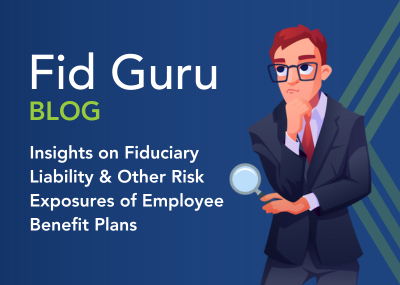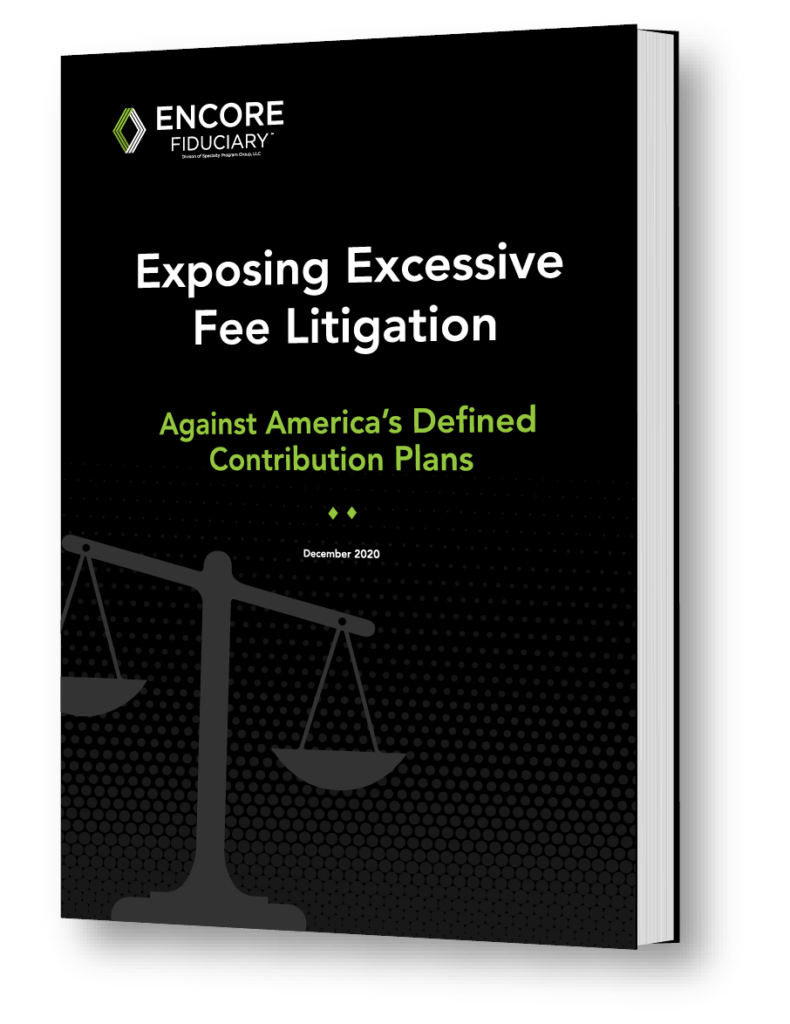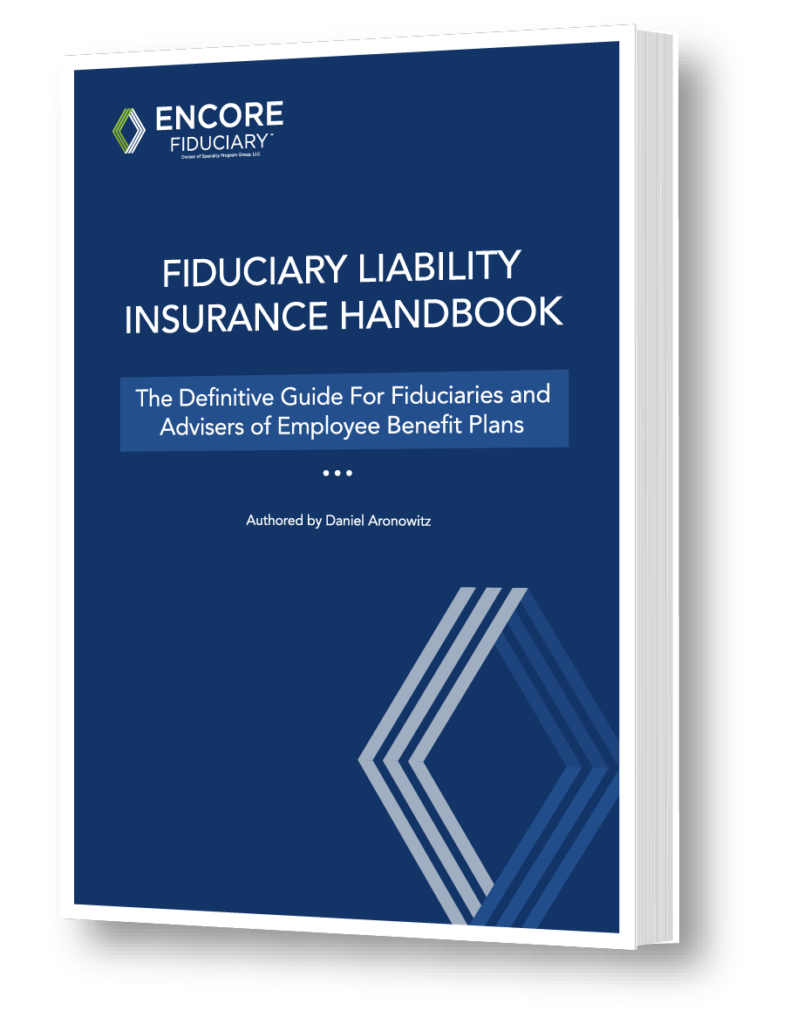By Daniel Aronowitz
The Seventh Circuit Court of Appeals heard oral argument in the remanded Divane v. Northwestern excessive fee case on the morning of November 29. The Seventh Circuit panel was skeptical of the excessive fee claims, and especially concerned that the lawsuit was “Monday-morning quarterbacking” of plan fiduciaries who had revamped the plan with lower fees and streamlined investment options both before and after the lawsuit was initially filed. One member of the judicial panel even asked whether the Hughes decision “baked in the business judgment rule” to allow good faith discretion for fiduciary decisions.
Although it is impossible to predict outcomes based on oral arguments, it is highly likely that the excessive recordkeeping fee claims will be dismissed under previous Oshkosh Seventh Circuit precedent, and probable that the investment claims will also be dismissed, although there was insufficient discussion on the impact of the Sixth Circuit’s Forman v. TriHealth retail-share class case to glean any real insight as to what the court is thinking. Again, it is a fool’s errand to make prediction based on oral arguments, but it appears that there is a significant chance that the Seventh Circuit will uphold its dismissal of the Northwestern excessive fee case. It is possible, however, that the Court will either allow plaintiffs to amend the complaint, or remand the case back to the district court to decide whether an amended complaint is warranted or futile under the new Hughes v. Northwestern pleading standard.
The Northwestern excessive fee saga may not be over. Nevertheless, a recap of the oral argument is useful for the thoughtful issues raised by the appellate panel. The following are the key issues we identified from the oral argument.
What is the plausibility standard after Hughes v. Northwestern?
The oral argument was dominated by questions from the bench that honed into the critical issues of the case, all of which we summarized in our pre-argument blog post. Analyzing the Hughes v. Northwestern Excessive Fee Case Before the Seventh Circuit’s November 29 Oral Argument – Euclid Fiduciary (euclidspecialty.com) The threshold issue was the proper pleading standard for excessive fee cases after the Hughes v. Northwestern Supreme Court ruling. More specifically, Northwestern had advocated in its brief for the Dudenhoeffer standard that the Supreme Court ruled applies in ERISA cases involving employer stock losses. The Court pushed back on that higher standard on the grounds that Dudenhoeffer only applies to ESOP allegations when there is the potential for insider trading. One judge even stated that Northwestern was advocating for an “extraordinary level of specificity” that was not justified under the Hughes decision. This was an overreach by Northwestern’s counsel, but the issue should be moot because the Seventh Circuit has already interpreted the “context-specific” plausibility standard in the Oshkosh case, and plaintiffs’ counsel added nothing to the discussion.
Did the Supreme Court Establish a Business Judgement Rule Protection for Plan Fiduciary Decisions?
The most interesting aspect of the argument was the question addressed to both parties as to whether the last sentence in the Hughes case about difficult tradeoffs informs the pleading standard. The Supreme Court ended the Hughes opinion with the helpful instruction that “circumstances facing an ERISA fiduciary will implicate difficult tradeoffs, and courts must give due regard to the range of reasonable judgments a fiduciary may make based on her experience and expertise.” One judge questioned whether this requirement “bake[s] in the business judgment rule.”
Given the poor performance of plaintiff’s counsel in the argument, it ended as a rhetorical question, but could be ground-breaking if the Court bases its decision on this conclusion. The business judgment rule provides immunity from liability to a director of a corporation when a plaintiff sues on grounds that the director violated the duty of care, as long as the director’s action fall within the parameters of the rule. Under the business judgment rule standard, a court will uphold the decisions of a director as long as they are made (1) in good faith, (2) with the care that a reasonably prudent person would use, and (3) with the reasonable belief that the director is acting in the best interests of the corporation. The business judgment rule is a presumption in favor of the board. It requires proof that the director acted in gross negligence, bad faith, or a conflict of interest to defeat the business judgment presumption. Needless to say, nearly every excessive fee case without proprietary investments from the plan sponsor would be dismissed under the business judgment rule. It would be a ground-breaking evolution in fiduciary responsibility law.
Who pays if there is no fiduciary insurance?
The panel started the questioning by asking the plaintiff lawyer from the Schlichter law firm a series of questions as to the fairness of attempting to assert individual liability against Northwestern plan fiduciaries. They asked: who pays if plaintiffs win, including “what happens if insurance doesn’t pay?”; can you impose personal liability on a fiduciary in an individual capacity?; and even whether plaintiffs’ counsel himself would serve as a fiduciary on an ERISA plan given the potential liability sought in this case. Plaintiffs’ counsel appeared to frustrate the panel by not engaging in these questions effectively, but these are interesting issues. From our sources, Northwestern has exhausted its fiduciary insurance given that the district court allowed nearly full discovery before deciding the motion to dismiss. The issue of individual liability is real when fiduciary insurance is exhausted or unavailable, and the plan technically cannot pay for breaches of fiduciary duty. Plaintiffs’ counsel suggested that they would dismiss the individual fiduciaries, but the judges were correct that there is no obligation to do so, and any such dismissal would rely on “grace” or mercy from plaintiffs’ counsel. It might not have an impact on the final decision, but the panel showed a thoughtful understanding of the real ramifications and harm caused by lawyer-driven litigation on plan fiduciaries.
Is there liability if the plan made remedial changes?
We have always advocated that the best defense of Northwestern in this case was to argue that it had fully overhauled its plan in 2016 with lower fees and a better investment lineup. It might have taken a few years to do so, but the plan was completely changed and addressed every alleged fiduciary breach in the lawsuit. The panel seemed to agree that it is unfair to seek liability when the plan fiduciaries had made substantive changes. The panel asked about the effect of the remedial efforts in fixing the plan, and whether it is “Monday-morning quarterbacking” to seek liability right after or when the plan was changed. The court asked what “stops just alleging that the changes were too late” every time a plan makes fee and investment changes. Again, plaintiffs’ counsel had little response to these questions, but the court had made its point. This “too little too late” argument is a frequent issue in excessive fee litigation.
The effect of the Oshkosh decision on the excessive recordkeeping fees
Both parties were given the opportunity to explain whether the Oshkosh decision eliminates the recordkeeping claims. Plaintiffs’ counsel offered a weak explanation that the Seventh Circuit’s George v. Kraft decision somehow supports their case to the extent that it allows claims for failure to solicit recordkeeping bids. But plaintiffs’ counsel was not able to explain if he was asking the court to overrule Oshkosh, and was otherwise unpersuasive on the issue. We heard nothing in the oral argument suggesting that the recordkeeping claims somehow survive the lack of meaningful benchmarks.
The effect of Forman v. TriHealth on retail-share class claims
The Court asked both parties whether Forman v. TriHealth applies to the investment fee claims in the case, given that the Sixth Circuit had allowed excessive investment fee claims based on the use of retail share classes instead of identical investments in lower-fee institutional share classes. We were surprised that plaintiff’s counsel did not pounce on this obvious issue to support their case, but Northwestern’s counsel tried hard to distinguish the case. As it did in the briefing, Northwestern argues that Forman is distinguishable because in that case the institutional share classes were available and pled with specificity, but institutional share class were not available in this case. Specifically, Northwestern argues that there is no retail-share class claim in the case. Rather, the claims are that the plan should have reduced its number of investment options, and only by consolidating the investments could the plan have met any investment minimums to reduce fees in institutional share classes. One judge expressed concern that plaintiffs’ claims would force Northwestern out of investments and lose the value of plan stability. Plaintiff’s counsel mysteriously made no effort to dispute this point at oral argument, but we cannot read too much into what the court is thinking because plaintiffs’ brief does an effective job of arguing that retail share class claims are in the case because Northwestern is a $3b+ plan that could have asked for waivers to qualify for lower share classes. Northwestern’s counsel did a much better job in oral argument on this (and every other) issue, but we caution that the Court likely understands both sides of the issue, even if plaintiff’s counsel did not make a persuasive rebuttal before the Court.
Can plaintiffs use evidence outside the complaint or amend its complaint under the new motion to dismiss plausibility standard?
We had noted in our pre-argument summary that the case presents two additional issues that may prove dispositive. First, there is the question as to whether the court can consider evidence from discovery to support plaintiffs’ claims [namely that Northwestern was allegedly advised by a plan consultant in 2011 and 2012 that maintaining multiple recordkeepers and duplicative funds led to unnecessary fees]. The Court seemed to suggest that plaintiffs are allowed to muster any type of evidence to prove the plausibility of their claims and what they intend to prove, but there was little discussion to gauge the issue fully. The second issue regarding whether the plaintiffs have the right to amend their complaint, however, could prove more dispositive. Northwestern argued that the plaintiffs had forfeited their right to amend their complaint, but the Court seemed concerned that there was no scheduling deadline in the district court. It is very possible that the Court will either allow an amended complaint or remand the case back to the district court to evaluate whether an amended pleading should be allowed or would be futile under the new pleading standard.
FINAL ANALYSIS
Oral argument can often be very misleading, particularly when, as here, one side’s counsel is very ineffective in advocating for their client’s position. But the Seventh Circuit was very skeptical of the excessive recordkeeping and investment fee claims. And the Court may have advanced new ground to the extent that they believe that the Supreme Court’s Hughes decision immunizes plan fiduciaries under a good faith business judgment rule standard. We also think the court may allow an amended complaint, or ask the district court to decide whether to give plaintiffs the chance to meet the new pleading standard, even if it really has never changed in the Seventh Circuit.
In final analysis, it will be worth waiting for the appellate decision in this case because if Northwestern somehow wins this case, it bodes well for plan sponsors in all excessive fee cases. The reason is that nearly every excessive fee case filed in the last five years has lower recordkeeping and investment fees than the Northwestern plan before it was revamped. Courts do not do a good job of comparing fees to arrive at legitimate perspectives as to whether fees are actually excessive. But if the Northwestern plan does not present plausible claims of excessive fees, it will be difficult for plaintiffs to establish a claim for excessive fees in most future cases. Courts are starting to realize that most excessive fee claims are exaggerated and illegitimate. We believe that wise plaintiff lawyers will start to pivot away from excessive fee claims and switch to claims of investment underperformance, which is where we believe the next chapter in lawyer-driven litigation against plan fiduciaries will be waged.


